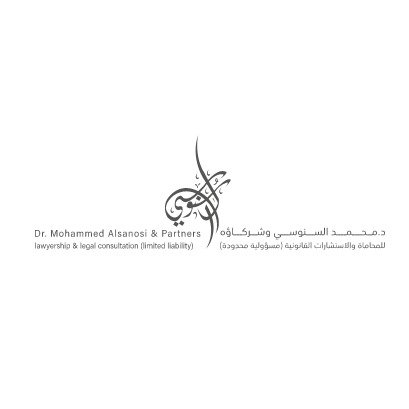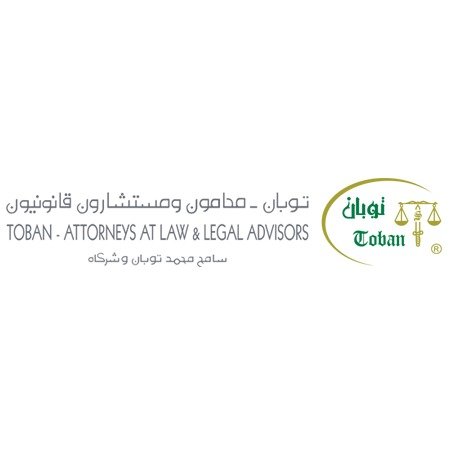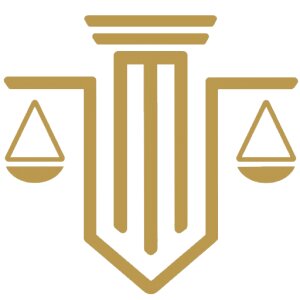Best Debt Capital Markets Lawyers in Jeddah
Share your needs with us, get contacted by law firms.
Free. Takes 2 min.
List of the best lawyers in Jeddah, Saudi Arabia
About Debt Capital Markets Law in Jeddah, Saudi Arabia
Debt Capital Markets (DCM) in Jeddah, Saudi Arabia, play a significant role in supporting the Kingdom's economic development. DCM involves the creation and trading of debt securities such as bonds, sukuk (Islamic bonds), notes, and other financial instruments issued by corporations, governments, or other entities to raise long-term funding. Saudi Arabia, including Jeddah, has embraced both conventional and Islamic finance instruments, making it an attractive location for investors seeking Sharia-compliant solutions as well as traditional investment opportunities. The Saudi Capital Market Authority (CMA) is the primary regulator overseeing the issuance, regulation, and operation of debt capital markets in the country.
Why You May Need a Lawyer
Seeking legal advice in relation to Debt Capital Markets is essential for various reasons. Individuals and entities might require a lawyer's assistance in the following situations:
- When issuing or structuring bonds, sukuk, or other debt instruments
- Negotiating terms and conditions between issuers, subscribers, and underwriters
- Ensuring compliance with Sharia principles in Islamic debt securities
- Navigating complex regulatory requirements imposed by the CMA and related authorities
- Advising on cross-border debt offerings involving foreign law considerations
- Addressing potential disputes or defaults related to debt instruments
- Conducting due diligence and risk assessments for investors or issuers
- Revising or amending existing debt instruments in response to changing market or legal conditions
Local Laws Overview
Debt Capital Markets in Jeddah are primarily governed by several key pieces of legislation and regulatory frameworks. The Capital Market Law and its Implementing Regulations, issued by the Saudi Capital Market Authority, lay out the general framework for the issuance and trading of debt instruments. For Islamic finance products, such as sukuk, compliance with Sharia principles is mandatory. This is often overseen by a Sharia Supervisory Board or Sharia scholar approval.
Other relevant laws include the Companies Law, which outlines the responsibilities and governance structures for entities seeking to raise funds through the issuance of debt securities, as well as the Bankruptcy Law, which provides procedures for dealing with defaults or insolvency. Additionally, anti-money laundering and terrorism financing regulations apply to deter and detect illicit activity within the capital markets space.
Local laws require rigorous approval, documentation, and disclosure procedures to safeguard the interests of all market participants, including issuers, investors, and intermediaries. Foreign investors face specific requirements and may need to work with authorized market participants and adhere to restrictions or approvals set by authorities such as the Saudi Arabian Monetary Authority (SAMA) and the CMA.
Frequently Asked Questions
What is the difference between bonds and sukuk in Saudi Arabia?
Bonds are conventional debt instruments representing a loan from investors to the issuer, with interest payments over time. Sukuk are Islamic financial certificates structured to comply with Sharia law, which prohibits interest, so returns are generated through ownership or investment in assets.
Who regulates the Debt Capital Markets in Jeddah?
The Saudi Capital Market Authority (CMA) is the primary regulator, overseeing the legal and regulatory framework for issuance and trading of debt securities, including bonds and sukuk, in Jeddah and across Saudi Arabia.
Are foreign investors allowed to participate in Debt Capital Markets in Jeddah?
Yes, foreign investors are permitted to participate, but they must meet certain eligibility criteria, adhere to regulatory requirements set by the CMA, and often need to work with local intermediaries or receive pre-approval.
Do debt instruments in Saudi Arabia have to comply with Islamic law?
Not all debt instruments must comply with Islamic law. Conventional bonds and other instruments can be issued, but sukuk and other Islamic finance products must adhere to Sharia principles.
What approvals are needed to issue debt securities like bonds or sukuk in Jeddah?
Issuers must submit detailed documentation to the CMA for review and approval. For sukuk, a Sharia Supervisory Board endorsement is also required. Approvals ensure compliance with regulatory, legal, and, if applicable, Sharia requirements.
What happens in case of default on a bond or sukuk?
Default procedures depend on the terms set out in the offering documents. Legal remedies available under Saudi law may include restructuring, enforcement of security, or insolvency proceedings under the Bankruptcy Law.
Can individuals invest in debt instruments or are they only accessible to institutions?
Both individuals and institutions can invest in many types of debt instruments in Saudi Arabia, although some offerings may be restricted to qualified investors based on CMA regulations.
How does the law protect investors in Debt Capital Markets?
Investor protection is secured through disclosure obligations, regulatory approvals, transparency requirements, and enforcement of contractual rights. The CMA actively oversees compliance and may sanction misconduct.
What documentation is required when issuing debt securities?
Issuers must prepare a prospectus or offering memorandum, financial statements, approvals from relevant boards (including Sharia for sukuk), and other supporting documents required by the CMA.
Do I need to appoint a local agent or adviser when issuing debt instruments?
It is common and often required to appoint local legal advisers, arrangers, and, in some cases, paying agents or trustees to ensure compliance with local laws and regulatory obligations.
Additional Resources
For those seeking more information or assistance in Debt Capital Markets in Jeddah, consider the following resources:
- Saudi Capital Market Authority (CMA) - Main regulatory body for capital market activities
- Saudi Arabian Monetary Authority (SAMA) - Supervises financial institutions and markets
- Ministry of Commerce - Registration and regulatory compliance for companies issuing debt
- Saudi Stock Exchange (Tadawul) - Official exchange platform for listing and trading debt securities
- Local law firms and legal consultancies specializing in capital markets and Islamic finance
- Chambers of Commerce in Jeddah - Networking and professional support for issuers and investors
Next Steps
If you are considering issuing, investing in, or advising on debt securities in Jeddah, Saudi Arabia, it is crucial to seek legal advice from qualified professionals with expertise in debt capital markets and local regulations. Begin by:
- Identifying your specific needs and goals in the capital markets
- Contacting a local law firm or legal adviser with relevant experience
- Preparing all necessary documentation and identifying any regulatory or Sharia compliance requirements
- Engaging with appropriate governmental bodies such as the CMA or SAMA if needed
- Conducting thorough due diligence and assessing all legal risks
- Ensuring ongoing compliance with all applicable laws and regulations throughout your involvement in the market
A knowledgeable local lawyer or adviser will be instrumental in guiding you through the legal, regulatory, and commercial aspects of Debt Capital Markets in Jeddah.
Lawzana helps you find the best lawyers and law firms in Jeddah through a curated and pre-screened list of qualified legal professionals. Our platform offers rankings and detailed profiles of attorneys and law firms, allowing you to compare based on practice areas, including Debt Capital Markets, experience, and client feedback.
Each profile includes a description of the firm's areas of practice, client reviews, team members and partners, year of establishment, spoken languages, office locations, contact information, social media presence, and any published articles or resources. Most firms on our platform speak English and are experienced in both local and international legal matters.
Get a quote from top-rated law firms in Jeddah, Saudi Arabia — quickly, securely, and without unnecessary hassle.
Disclaimer:
The information provided on this page is for general informational purposes only and does not constitute legal advice. While we strive to ensure the accuracy and relevance of the content, legal information may change over time, and interpretations of the law can vary. You should always consult with a qualified legal professional for advice specific to your situation.
We disclaim all liability for actions taken or not taken based on the content of this page. If you believe any information is incorrect or outdated, please contact us, and we will review and update it where appropriate.
















